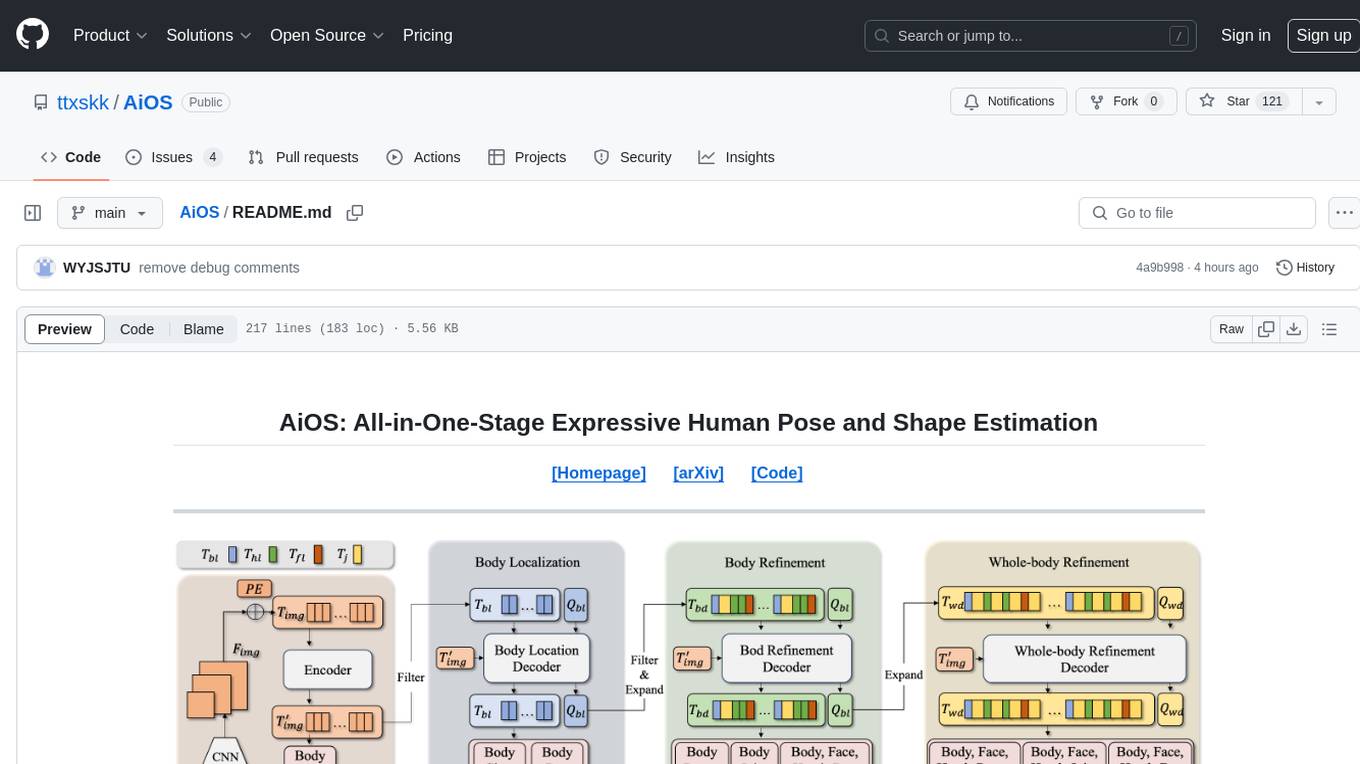Best AI tools for< Regress Smpl-x Parameters >
1 - AI tool Sites

BuzzCut
BuzzCut is a free online AI-powered hairstyle changer that allows users to discover and try different hairstyles, including buzz cuts and various guard lengths. With advanced AI technology, users can upload their photo, experiment with different styles, and receive instant realistic previews to help them choose the perfect hairstyle. The platform offers over 40 hairstyles, including popular buzz cut lengths, and provides a user-friendly experience for anyone curious about short haircuts. BuzzCut aims to be a virtual hairstyle guide, helping users save time, avoid haircut regrets, and make confident styling decisions.
1 - Open Source AI Tools

AiOS
AiOS is a tool for human pose and shape estimation, performing human localization and SMPL-X estimation in a progressive manner. It consists of body localization, body refinement, and whole-body refinement stages. Users can download datasets for evaluation, SMPL-X body models, and AiOS checkpoint. Installation involves creating a conda virtual environment, installing PyTorch, torchvision, Pytorch3D, MMCV, and other dependencies. Inference requires placing the video for inference and pretrained models in specific directories. Test results are provided for NMVE, NMJE, MVE, and MPJPE on datasets like BEDLAM and AGORA. Users can run scripts for AGORA validation, AGORA test leaderboard, and BEDLAM leaderboard. The tool acknowledges codes from MMHuman3D, ED-Pose, and SMPLer-X.